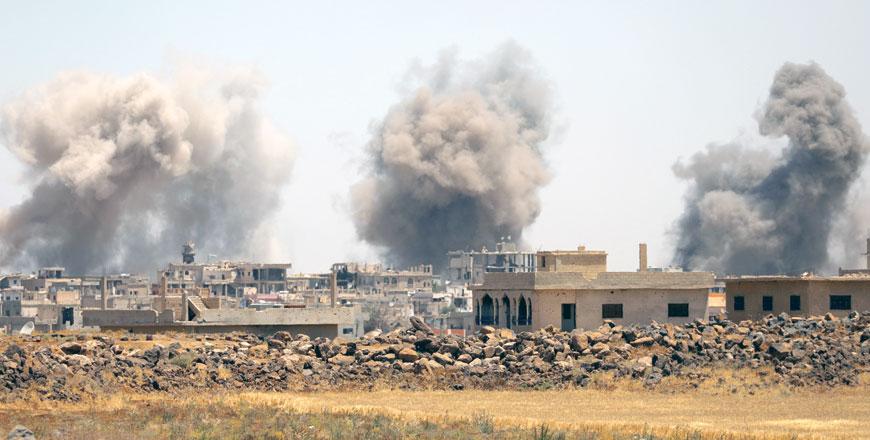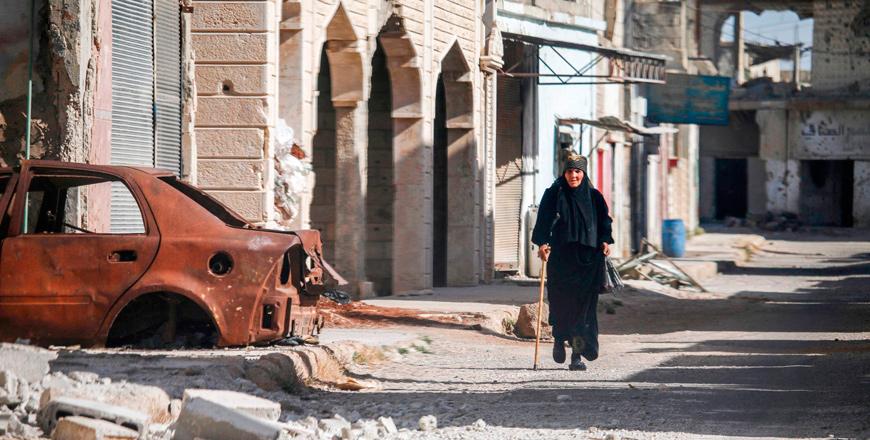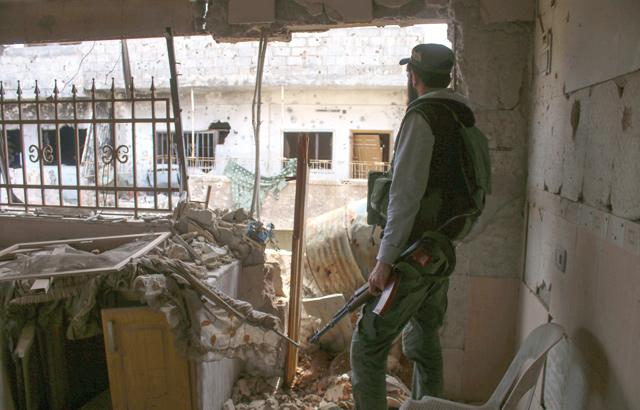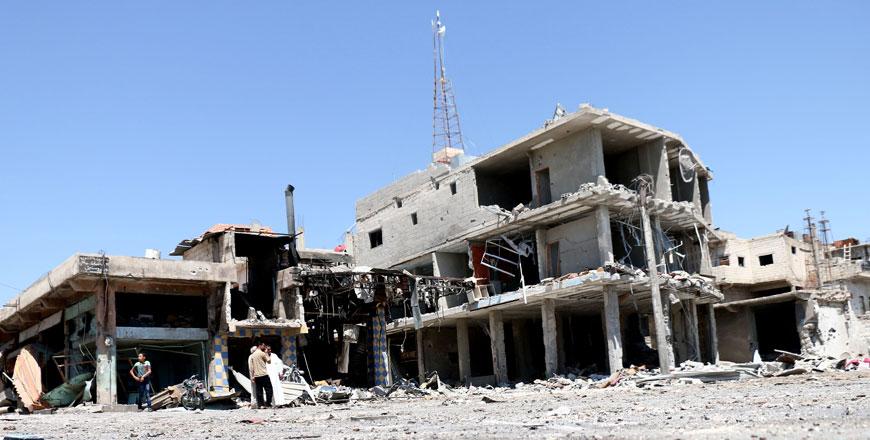You are here
Families flee as regime, Russia pummel Syria's south
By AFP - Jun 26,2018 - Last updated at Jun 26,2018

Smoke rises from Al Harak town, as seen from the Deraa countryside, Syria, on Monday (Reuters photo)
DARAA, Syria — Syria's government ramped up its bombardment of the southern city of Daraa on Monday, forcing dozens of families to flee an expected assault on the cradle of a seven-year uprising.
After a string of wins elsewhere in the country, President Bashar Al Assad has set his sights on recapturing the country's strategic south, which borders Jordan and the Israeli-occupied Golan Heights.
His forces have been battering rebel-held towns in Daraa province for nearly a week, leaving at least 28 civilians dead, according to the Syrian Observatory for Human Rights.
They then turned to the provincial capital of the same name, launching air strikes and barrel bombs on opposition-held districts in the early hours of Monday.
More than 55 surface-to-surface missiles slammed into those neighbourhoods after midnight, followed by four barrel bombs, the Britain-based observatory said.
"It is the first time they drop barrel bombs on Daraa city in more than a year," said monitor chief Rami Abdel Rahman.
The city was struck again around noon, this time with air strikes by Syria's ally Russia, which has helped Assad's troops recapture swathes of territory since 2015.
The attacks prompted dozens of terrified families to stream out of Daraa city.
Many set out in the dead of night to seek shelter in olive groves on the city limits, AFP's correspondent there said.
Leaving on foot or by motorbike, they took refuge in small shacks or tents among the trees.
"We don't know what happened. We were sleeping with the children when all of a sudden, we heard heavy shelling," said Ahmad Al Musalima, 31.
"The kids started shaking in fear," he said.
He and his family fled overnight, joining an estimated 20,000 people displaced by the past week's escalating violence, according to the observatory.
Divide and conquer
"We left the house and didn't know where to go. We headed towards the plain with the kids crying and heavy shelling overhead," Musalima told AFP.
Syrian rebels hold the western half of Daraa city and most of the surrounding province, as well most of the adjacent governorate of Quneitra to the west.
That territory roughly forms a horseshoe, whose bottom curve borders Jordan and includes a military base held by rebels since 2014.
Syrian troops, meanwhile, hold Daraa city’s eastern half and nearly all the adjacent province of Sweida.
Frontlines had been relatively quiet for nearly a year under a “de-escalation” deal agreed in July 2017 by Russia, the US, and Jordan.
But now, the regime and its Russian allies are pursuing a divide-and-conquer strategy against rebels.
On Monday, Russian bombing raids hit the military base near the border with Jordan, said the Observatory.
Ousting rebels from it would divide the opposition horseshoe into a western and eastern section.
Russian strikes and 20 regime barrel bombs on Monday also hit the key town of Basr Al Harir in Daraa’s eastern countryside, rocked by clashes for nearly a week.
“Capturing the town would allow troops to divide rebel territory to smaller pockets,” Abdel Rahman said.
The heavy strikes on Daraa’s eastern countryside forced rescue workers to stop operations in the town of Al Laja.
“The civil defence teams have not been able to reach targeted areas because of the intense bombing,” the local civil defence centre said in an online statement.
US holds back
The United Nations has warned that the renewed hostilities could put 750,000 lives at risk and urged all sides to respect last year’s de-escalation agreement.
“Any humanitarian crisis in south Syria must be averted first by sparing civilians the pains of fighting, and second, be responded to swiftly from inside and outside Syria,” said Ali Al Zaatari, UN humanitarian coordinator in Syria.
Jordan said on Sunday it could not absorb a new wave of refugees across its border.
In an effort to avoid a bloody onslaught, Russia is leading negotiations with Syria, Jordan, Israel, and the US in a bid to reach a settlement.
The uptick in violence could be tied to those talks, said Sam Heller of the International Crisis Group.
“It seems the air strikes have two aims: Exerting pressure in order to get negotiations, either international or local, and paving the way for a wider attack in case the negotiations don’t make progress,” he told AFP.
Although it had a key role in the original de-escalation deal, Washington has yet to put its political or military weight behind a solution for the south, he said.
“The Americans haven’t gotten seriously involved in the talks over the south, and they’re not expected to intervene militarily,” Heller said.
Related Articles
BEIRUT/UNITED NATIONS — Syrian regime forces on Saturday made their first gains on the ground against rebel fighters in the southern provinc
DARAA, Syria — On a tense urban frontline in Syria's Daraa, rebel Atallah Qutayfan has been steadily reinforcing his defensive post for week
BEIRUT — Air strikes have killed 15 civilians in a rebel-held pocket of southern Syria as regime ally Russia presses talks for Damascus to r














